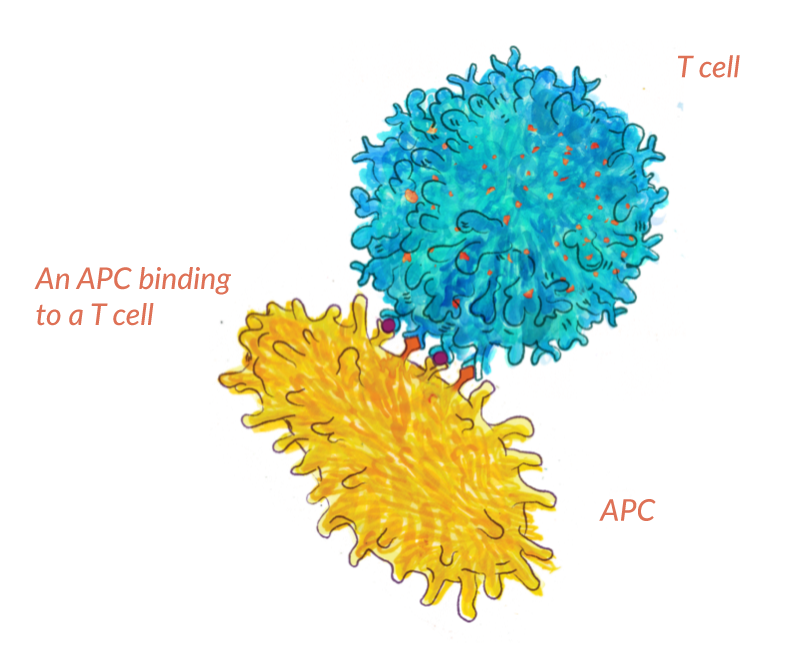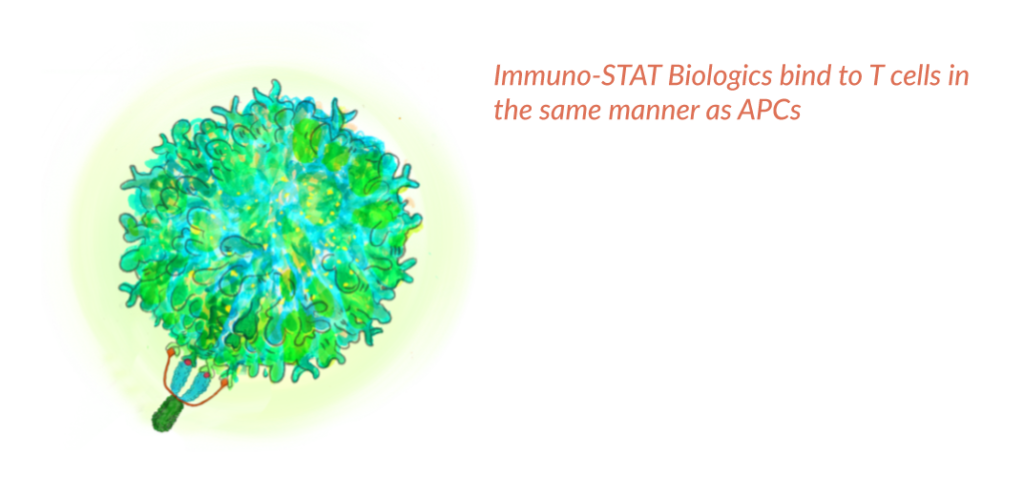Role of T Cells in the Immune System
The human immune system comprises a number of specialized cells which collectively function to identify and defend the body against foreign threats. Central to the proper functioning of the immune system are the coordinated communications between two specialized cell types, antigen-presenting cells (APCs) and T cells. T cells are potent immune cells that can be rapidly and selectively deployed by the body to neutralize threats such as bacteria, viruses and cancer cells. APCs modulate the T cell response through the presentation of protein fragments (epitopes) displayed on major histocompatibility complexes (pMHCs) and delivery of signals to either activate or inhibit T cell activity. Proper communication and regulation through antigen presentation to T cells is central to a healthy immune system, as it maintains the balance necessary to respond to threats but also to protect the body from harm by its own immune cells as happens in autoimmune diseases. The goal of immunotherapy, including immuno-oncology, is to harness the body’s natural, protective capacity by modulating and inducing T cell activity to attack cancer cells or, in the case of autoimmunity, to shut off activated T cells to prevent the body’s T cells from attacking healthy tissues.

An effective T cell response to cancer is dependent on the appropriate communication of signals between APCs and T cells. APCs engage T cells by simultaneously binding a pMHC with the T cell’s corresponding T cell receptor (TCR) and delivering a co-stimulatory signal. This process instructs disease-associated T cells to proliferate and attack the cancer cells displaying the same peptide presented to the T cell with the pMHC.
Autoimmune disease results when there is a breakdown of the normal mechanisms deployed by the immune system to regulate and control T cells responsive to normal tissue. When these T cells are not properly regulated, or their activity is not dampened, they are free to damage healthy tissues.
Learn how Immuno-STAT Biologics selectively modulate disease-associated T cells to fight cancer.
Play Video
Modulating the Immune System
At Cue Biopharma we are developing biologics that mimic APCs to selectively and effectively deliver signals to disease-associated T cells. We believe our approach to generating highly targeted and selective T cell responses will result in more effective and safer therapies for addressing cancer and autoimmune diseases. We have developed a proprietary platform for the design and development of Immuno-STAT (Selective Targeting and Alteration of T cells) Biologics for T cell-based immunotherapy.


